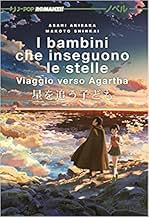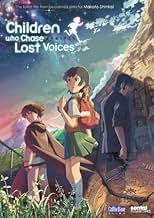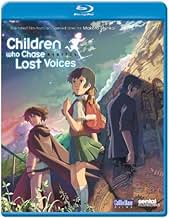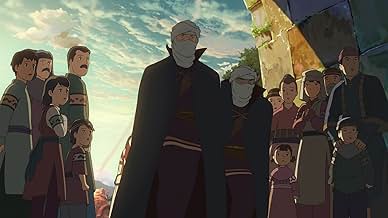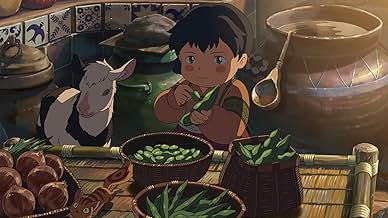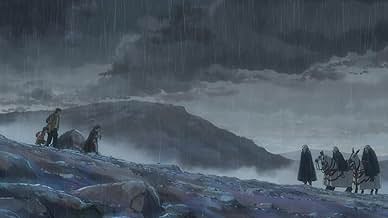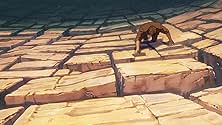NOTE IMDb
7,1/10
18 k
MA NOTE
Une histoire d'ado impliquant un jeune amour et une musique mystérieuse, provenant d'une radio en cristal laissée en souvenir par un père absent, qui entraîne une jeune héroïne dans un monde... Tout lireUne histoire d'ado impliquant un jeune amour et une musique mystérieuse, provenant d'une radio en cristal laissée en souvenir par un père absent, qui entraîne une jeune héroïne dans un monde dissimulé.Une histoire d'ado impliquant un jeune amour et une musique mystérieuse, provenant d'une radio en cristal laissée en souvenir par un père absent, qui entraîne une jeune héroïne dans un monde dissimulé.
- Réalisation
- Scénario
- Casting principal
- Récompenses
- 1 victoire et 7 nominations au total
Miyu Irino
- Shin
- (voix)
- …
Junko Takeuchi
- Mimi
- (voix)
Aki Kanada
- Seito
- (voix)
- (as Aki Kaneda)
Ai Horanai
- Seito
- (voix)
Saya Horigome
- Seito
- (voix)
Mayumi Tsuchiya
- Seito
- (voix)
Mao Kobayashi
- Seito
- (voix)
- (as Satomi Saitô)
Naomi Matamura
- Murabito
- (voix)
Mariko Nagahama
- Murabito
- (voix)
Mika Ishibashi
- Murabito
- (voix)
Yûtarô Honjô
- Murabito
- (voix)
Avis à la une
This movie, with its gorgeous animated vistas and hopeful if melancholic feel was impressive overall, even if it suffered from plot incoherence. This is a trend we've noticed in some recent (non-Ghibli) Japanese anime. It also shares a typical feature of these movies, the shy, introspective girl who is drawn into a fantastic world (e.g. The Cat Returns, Wonderland). Here the goal is to explore the underworld, which seems to be a post-mortem realm filled with dead people and gods, vast and yet declining, vulnerable to human infiltration. And that is precisely what happens here, the girl chasing the voice of a love interest she will never really have, and her teacher, who collects lore about the afterlife from ancient cultures, who is looking to retrieve his dead wife. If that sounds like Orpheus, the ending certainly reflects it in some ways, but otherwise there are actually very few allusions to traditions about the underworld, beyond a few monstrous guards, and a steam-punk ancient Mesopotamian aesthetic reminiscent of Castle in the Sky. Despite the awkward plot, my kids and I were drawn in by the amazing visuals and sense of foreboding that is present at the start and only grows as the adventure continues.
Sienna's rating: 7 or 8 stars Paul's rating: 8 stars Seb's rating: 8 stars.
Sienna's rating: 7 or 8 stars Paul's rating: 8 stars Seb's rating: 8 stars.
According to Japanese anime director Makoto Shinkai, his latest film Children who Chase Lost Voices from Deep Below is a study of "how people are connected" and the relationship between individuals. Although the film is designed primarily for a young audience, adult themes of love and loss abound in its story of mourning lovers attempting to reach out to them across the dimensions. Its theme can also be said to encompass the Four Noble Truths of Buddhism: Life is full of suffering, suffering is caused by attachment, release from suffering is attainable, and there is a path to the end of suffering. Here, the path is setting your loved one free and "saying hello" to a world without them.
Nominated for best animated feature at the Asian Pacific Screen Awards in 2011, the film takes us on a journey to a land deep below the surface of the Earth, the legendary country called Agartha where it is rumored the dead can be brought back to life. Unlike other visionary depictions of mythical kingdoms, Agartha has no magical cities of gold with tall towers and futuristic technology, but rather a rural environment of towns and villages in which mundane life appears similar to those who are called the "topsiders", those who live on the surface (us).
Supported by the ethereal soundtrack of Tenmon http://www.youtube.com/watch?v=NpRFbY189bo, the plot centers around the quest of a young girl of around 11 or 12 named Asuna Watase (Hisako Kanamoto) to find the mythical Agartha, talked about by her substitute teacher, Ryugi Morisaki (Kazuhiko Inoue). Mirroring the Greek legend of Orpheus and Eurydice and its Japanese equivalent, the myth of Izanagi and Izanami, Morisaki longs to travel to Agartha to find his deceased wife Lisa and bring her back with him to Earth. Asuna has also lost a loved one. Her father died when she was little, compelling her mother to work long hours as a nurse. Lonely and withdrawn, she spends her time after school in her private mountain retreat listening to the crystal radio her father had given her.
One day, after hearing beautiful and strange music from her radio, she meets a young boy with supernatural powers named Shun (Miyu Irino), who saves her from the attack of a ferocious bear-like creature. Returning the next day, Shun tells her that he is from Agartha, a land deep inside the core of the hollow Earth. Surprised by a blessing from Shun in the form of a kiss on the forehead, Asuna leaves suddenly but when she comes back the following day, she learns sadly that Shun, while trying to reach for the stars, has fallen off a ledge and died.
Telling her story to Mr. Morisaki, the teacher informs her that in the ancient times, humans were guided by creatures known as "Quetzalcoatls," a name we know from Mesoamerican history as the Aztec God called the "Feathered Serpent" who, according to legend, promised to return one day to lead his people. When Asuna once again returns to her hiding place, she discovers a boy who looks like Shun but who claims to be his brother Shin (Irino). Morisaki poses as a warrior of the group called the Arch Angels, those who want to reach Agartha but are interested only in its wealth and superior knowledge. Morisaki, however, simply wants to find his dead wife Lisa.
Using a device known as a "clavis," he and Asuna enter the underground realms and begin their travel to the Gate of Life and Death, "the undiscovered country from whose bourn no traveler returns." The journey through the subterranean realms is filled with both beauty and the obligatory horror, the norm for sci-fi adventure stories for children. Asuna and Morisaki are attacked by fearful long-toothed monsters (children must have their nightmares), and have to rely on the powers of Shin to save them, even though he had been given the task of retrieving the "clavis" which they possess.
The remainder of the film is filled with numerous plot twists and turns that introduce other characters and some of it can be confusing. The viewer is treated, however, to ravishing visuals that invoke the experience of dimensions far beyond our limited reality. Ultimately, Morisaki and Asuna are forced to choose whether or not they wish to pursue their goal in Agartha or let go and surrender to the wisdom of the universe, and the theme song of the film by Anri Kumaki, "Hello, Goodbye and Hello," http://www.youtube.com/watch?v=UgWb2YSTovA exquisitely embraces the conflicting emotions the characters feel.
Whether or not you have recently lost a loved one, you may find the tears hard to resist. Lost Voices is the first of Shinkai's films that I have seen and it definitely encourages me to see more. Comparisons of Shinkai's themes and style have been made with those of Hayao Miyazaki, but since I have only seen one of Miyazaki's films, I will leave the comparisons to others and just enjoy the warm glow of Shinkai's stunning achievement.
Nominated for best animated feature at the Asian Pacific Screen Awards in 2011, the film takes us on a journey to a land deep below the surface of the Earth, the legendary country called Agartha where it is rumored the dead can be brought back to life. Unlike other visionary depictions of mythical kingdoms, Agartha has no magical cities of gold with tall towers and futuristic technology, but rather a rural environment of towns and villages in which mundane life appears similar to those who are called the "topsiders", those who live on the surface (us).
Supported by the ethereal soundtrack of Tenmon http://www.youtube.com/watch?v=NpRFbY189bo, the plot centers around the quest of a young girl of around 11 or 12 named Asuna Watase (Hisako Kanamoto) to find the mythical Agartha, talked about by her substitute teacher, Ryugi Morisaki (Kazuhiko Inoue). Mirroring the Greek legend of Orpheus and Eurydice and its Japanese equivalent, the myth of Izanagi and Izanami, Morisaki longs to travel to Agartha to find his deceased wife Lisa and bring her back with him to Earth. Asuna has also lost a loved one. Her father died when she was little, compelling her mother to work long hours as a nurse. Lonely and withdrawn, she spends her time after school in her private mountain retreat listening to the crystal radio her father had given her.
One day, after hearing beautiful and strange music from her radio, she meets a young boy with supernatural powers named Shun (Miyu Irino), who saves her from the attack of a ferocious bear-like creature. Returning the next day, Shun tells her that he is from Agartha, a land deep inside the core of the hollow Earth. Surprised by a blessing from Shun in the form of a kiss on the forehead, Asuna leaves suddenly but when she comes back the following day, she learns sadly that Shun, while trying to reach for the stars, has fallen off a ledge and died.
Telling her story to Mr. Morisaki, the teacher informs her that in the ancient times, humans were guided by creatures known as "Quetzalcoatls," a name we know from Mesoamerican history as the Aztec God called the "Feathered Serpent" who, according to legend, promised to return one day to lead his people. When Asuna once again returns to her hiding place, she discovers a boy who looks like Shun but who claims to be his brother Shin (Irino). Morisaki poses as a warrior of the group called the Arch Angels, those who want to reach Agartha but are interested only in its wealth and superior knowledge. Morisaki, however, simply wants to find his dead wife Lisa.
Using a device known as a "clavis," he and Asuna enter the underground realms and begin their travel to the Gate of Life and Death, "the undiscovered country from whose bourn no traveler returns." The journey through the subterranean realms is filled with both beauty and the obligatory horror, the norm for sci-fi adventure stories for children. Asuna and Morisaki are attacked by fearful long-toothed monsters (children must have their nightmares), and have to rely on the powers of Shin to save them, even though he had been given the task of retrieving the "clavis" which they possess.
The remainder of the film is filled with numerous plot twists and turns that introduce other characters and some of it can be confusing. The viewer is treated, however, to ravishing visuals that invoke the experience of dimensions far beyond our limited reality. Ultimately, Morisaki and Asuna are forced to choose whether or not they wish to pursue their goal in Agartha or let go and surrender to the wisdom of the universe, and the theme song of the film by Anri Kumaki, "Hello, Goodbye and Hello," http://www.youtube.com/watch?v=UgWb2YSTovA exquisitely embraces the conflicting emotions the characters feel.
Whether or not you have recently lost a loved one, you may find the tears hard to resist. Lost Voices is the first of Shinkai's films that I have seen and it definitely encourages me to see more. Comparisons of Shinkai's themes and style have been made with those of Hayao Miyazaki, but since I have only seen one of Miyazaki's films, I will leave the comparisons to others and just enjoy the warm glow of Shinkai's stunning achievement.
Since Hoshi no koe I've been a big fan of Makoto Shinkai and I always find his movies so beautiful that make him the only anime producer who is comparable with Miyazaki Hayao. For his latest work "Children who chase voice from deep below", the story settings and the characters are quite different from his previous works. The idea is likely inspired by the many old myths like the story of Orpheus, who traveled to the underworld and by his music softened the hearts of Gods. Yet "Children who chase voice from deep below" keeps on the track with Shinkai's previous works in discussing loneliness of human beings, but unlike "5 centimetres per second", with hope and love this time.
The music, once again, is perfect and the scenes are delicate and tender. When watching this you find yourself immersed in a dream-like situation where the sky and the trees and the world are of the beauty that far beyond your imagination. Shinkai created perfect environments, the moving wind and the colourful insects, every single detail in every single scene is fantastic. The plot line is a romantic imagination. It portrays a journey of finding hope and love after the every loss throughout our life. It's a reflection of life with fantasy elements. To recover from immense sorrow and stand up again and look forward to the future. I love the message the movie brought to me. However, the story does have flaws. The pace of some parts is too slow while of some parts is too fast. It can be explained by looking at the length of the movie, which is of the longest in Shinkai's works. And obviously, he still has to look for better ways to deal with a "long" movie. Besides it is a pity that Shinkai abandons his talent on talking about modern city life but tries to give a tribute to Miyazaki Hayao by duplicating many elements in Ghibli's anime movies. I have this impression because while watching I thought of Miyazaki Hayao's works like "Princess Mononoke" and "Laputa" in several occasions, yet not as good as those works. A good try with rooms for improvement. After all,however, I still love this film. It reminds me of the beauty in our life. I am particularly touched while on the edge of death the girl Asuna recounts every person in her life she is loved by and says, "After all it was only because of my loneliness." It moves me so much that how our every day will be if we treasure the people still beside us instead of looking for someone or something that is so abstract and beyond our reach. If you love Shinkai, go watch it. It is, definitely, a touching piece for all of us.
The music, once again, is perfect and the scenes are delicate and tender. When watching this you find yourself immersed in a dream-like situation where the sky and the trees and the world are of the beauty that far beyond your imagination. Shinkai created perfect environments, the moving wind and the colourful insects, every single detail in every single scene is fantastic. The plot line is a romantic imagination. It portrays a journey of finding hope and love after the every loss throughout our life. It's a reflection of life with fantasy elements. To recover from immense sorrow and stand up again and look forward to the future. I love the message the movie brought to me. However, the story does have flaws. The pace of some parts is too slow while of some parts is too fast. It can be explained by looking at the length of the movie, which is of the longest in Shinkai's works. And obviously, he still has to look for better ways to deal with a "long" movie. Besides it is a pity that Shinkai abandons his talent on talking about modern city life but tries to give a tribute to Miyazaki Hayao by duplicating many elements in Ghibli's anime movies. I have this impression because while watching I thought of Miyazaki Hayao's works like "Princess Mononoke" and "Laputa" in several occasions, yet not as good as those works. A good try with rooms for improvement. After all,however, I still love this film. It reminds me of the beauty in our life. I am particularly touched while on the edge of death the girl Asuna recounts every person in her life she is loved by and says, "After all it was only because of my loneliness." It moves me so much that how our every day will be if we treasure the people still beside us instead of looking for someone or something that is so abstract and beyond our reach. If you love Shinkai, go watch it. It is, definitely, a touching piece for all of us.
This is a nice little movie notable primarily for its visual beauty. The story is loosely constructed but engaging, the mythical creatures are imaginative, and the whole thing is, while not especially memorable, generally enjoyable.
On the other hand, I felt the movie kept implying things and then just dropping them. A mysterious boy's statements to the girl seem fraught with meaning, suggesting some back story that is then never revealed. A strange crystal also must have some sort of history, but what? It's as the movie has unplumbed depths.
This may be the reason that at the end I didn't have the feeling of satisfaction I experience at the end of other movies (like the films of Miyamota). There is something absent from this one. But it's still a nice movie.
On the other hand, I felt the movie kept implying things and then just dropping them. A mysterious boy's statements to the girl seem fraught with meaning, suggesting some back story that is then never revealed. A strange crystal also must have some sort of history, but what? It's as the movie has unplumbed depths.
This may be the reason that at the end I didn't have the feeling of satisfaction I experience at the end of other movies (like the films of Miyamota). There is something absent from this one. But it's still a nice movie.
A coming of age story dealing with Asuka, she is the protagonist of this story, who spends her days alone listening to the mysterious music emitted by an old crystal radio, a gift that her absent father gave her as a memento before he died. Attacked by a monstrous creature, rescued by a mysterious boy named Shun and hunted by a relentless enemy,. Asuna will be immersed in an ancient mystery that could be the secret of life itself. It leads the young heroine deep into a hidden world, to a legendary country with several surprises. A journey to say goodbye !. A girl who does not yet realise her loss, and a boy from a foreign land searching for his place !. A man who refuses to accept his loss !. Each with their own feelings in their hearts, they set out on a journey into the depths of the world !.
The beauty of the settings, the characters, maarvellous drawings and the fantasy elements leave no doubt as to why the director has been labeled as the new Hayao Miyazaki. This wonderful film is plenty of fantasy , adventures, drama, spectacular combats and with ecological message . The picture is narrated with sensibility and sense of wonder and quite entertaining. The film has all the necessary elements to be a success among anime fans. It is a story of great fantasy involving young love and a mysterious music with a courageous protagonist who enters a beautiful world full of colorful settings and strange creatures, clearly influenced by Hayao Miyazaki's classic 'Princess Mononoke'. There's also a deep critical about nature exploiting and disasters and rampage caused by the encroaching human civilization. With an impressive quality of colors and animation, this is one of the best anime of 2011. A fantastic journey to a parallel world, Shinkai directs this fable that connects the most earthly part of nature with the most mystical part.
It is inevitable to compare the style of the film with that of Hayao Miyazaki and his Ghibli studio, of which Shinkai confesses to having always admired it. In addition, the music composed by Tenmen, a friend and regular collaborator of the director, stands out. The motion picture was professional and stunningly directed by Makoto Shinkai After spending a year in London, Makoto returned to Japan with renewed energy to undertake a new film project that would follow in the footsteps of his previous ones. Focusing on the loss of loved relatives, he also explored the ways in which we can overcome this loss. Unlike in other works, in which Shinkai himself created a novel version, here he opted for two different adaptations in the form of Manga: ¨Journey to Agartha: Children who chase lost voiced from deep below¨ by Tomoko Mitani and ¨Journey to Agartha: Children who come from deep below¨ by Asahi Hidaka. The film was nominated for the award for best animated design at the Asia Pacific 2011, as well as the Golden Raven at the Brussels Fantasy Festival that same year. Hoshi o Ou Kodomo(2011) rating: 7.5/10. Better than average.
The beauty of the settings, the characters, maarvellous drawings and the fantasy elements leave no doubt as to why the director has been labeled as the new Hayao Miyazaki. This wonderful film is plenty of fantasy , adventures, drama, spectacular combats and with ecological message . The picture is narrated with sensibility and sense of wonder and quite entertaining. The film has all the necessary elements to be a success among anime fans. It is a story of great fantasy involving young love and a mysterious music with a courageous protagonist who enters a beautiful world full of colorful settings and strange creatures, clearly influenced by Hayao Miyazaki's classic 'Princess Mononoke'. There's also a deep critical about nature exploiting and disasters and rampage caused by the encroaching human civilization. With an impressive quality of colors and animation, this is one of the best anime of 2011. A fantastic journey to a parallel world, Shinkai directs this fable that connects the most earthly part of nature with the most mystical part.
It is inevitable to compare the style of the film with that of Hayao Miyazaki and his Ghibli studio, of which Shinkai confesses to having always admired it. In addition, the music composed by Tenmen, a friend and regular collaborator of the director, stands out. The motion picture was professional and stunningly directed by Makoto Shinkai After spending a year in London, Makoto returned to Japan with renewed energy to undertake a new film project that would follow in the footsteps of his previous ones. Focusing on the loss of loved relatives, he also explored the ways in which we can overcome this loss. Unlike in other works, in which Shinkai himself created a novel version, here he opted for two different adaptations in the form of Manga: ¨Journey to Agartha: Children who chase lost voiced from deep below¨ by Tomoko Mitani and ¨Journey to Agartha: Children who come from deep below¨ by Asahi Hidaka. The film was nominated for the award for best animated design at the Asia Pacific 2011, as well as the Golden Raven at the Brussels Fantasy Festival that same year. Hoshi o Ou Kodomo(2011) rating: 7.5/10. Better than average.
Le saviez-vous
- AnecdotesBefore the film's release in May 2011, manga adaptations were set to begin serialization in April 2011
- Bandes originalesHello Goodbye & Hello
Lyrics & Music by Anri Kumaki
Arranged by Shun'ya Shimizu
Performed by Anri Kumaki
Meilleurs choix
Connectez-vous pour évaluer et suivre la liste de favoris afin de recevoir des recommandations personnalisées
- How long is Children Who Chase Lost Voices?Alimenté par Alexa
Détails
- Date de sortie
- Pays d’origine
- Site officiel
- Langues
- Aussi connu sous le nom de
- Children Who Chase Lost Voices
- Sociétés de production
- Voir plus de crédits d'entreprise sur IMDbPro
Box-office
- Montant brut mondial
- 645 560 $US
- Durée1 heure 56 minutes
- Couleur
- Mixage
- Rapport de forme
- 1.85 : 1
Contribuer à cette page
Suggérer une modification ou ajouter du contenu manquant

Lacune principale
By what name was Voyage vers Agartha (2011) officially released in India in English?
Répondre

